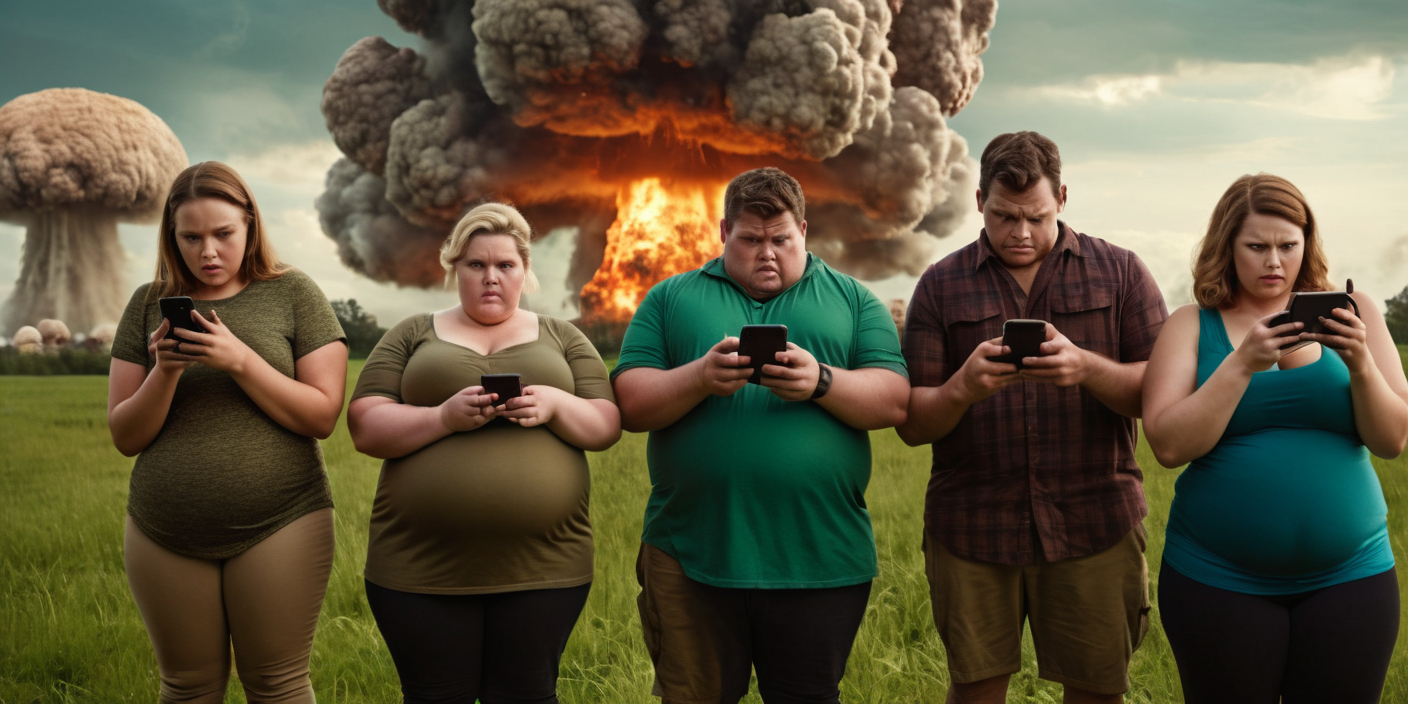Society and the net result of 24/7 mindless entertainment
A society saturated with 24/7 mindless entertainment that requires little to no critical thinking would likely experience profound and multifaceted consequences, both individually and collectively. Here’s my analysis of potential outcomes:
Cognitive and Psychological Effects
- Erosion of Critical Thinking: Prolonged exposure to passive, unchallenging content could diminish analytical skills, problem-solving abilities, and intellectual curiosity. Over time, individuals might struggle to engage with complex ideas or discern nuanced arguments.
- Shortened Attention Spans: Constant stimulation from fast-paced, low-effort entertainment could reduce patience for sustained focus, impacting learning, work productivity, and deep interpersonal connections.
- Mental Health Challenges: Escapism through endless distraction might exacerbate anxiety, depression, or existential dissatisfaction, as individuals avoid confronting personal or societal issues. Addiction to dopamine-driven content (e.g., social media, viral videos) could also emerge.
Social and Cultural Shifts
- Superficial Social Interactions: Relationships might center on trivial or entertainment-driven topics, eroding empathy and depth in communication. Social cohesion could weaken as shared values shift toward consumption rather than collaboration.
- Decline in Civic Engagement: A disengaged populace might neglect voting, community involvement, or activism, leading to apathy toward governance and social justice. This could enable authoritarianism or manipulation by those spreading misinformation.
- Cultural Homogenization: Creativity and innovation in arts, literature, and media might stagnate as mass-produced, formulaic content dominates, marginalizing diverse or challenging perspectives.
Educational and Economic Impacts
- Educational Decline: Students raised on effortless entertainment may struggle with academic rigor, critical analysis, or creativity. Educators could face challenges competing with addictive distractions, lowering overall literacy and intellectual achievement.
- Economic Vulnerability: A workforce lacking critical skills (e.g., problem-solving, adaptability) might hinder economic innovation and competitiveness. Certain sectors (e.g., tech, entertainment) could thrive, but broader economic resilience might suffer.
Political Ramifications
- Susceptibility to Manipulation: Reduced critical thinking and disengagement from civic discourse could make society more vulnerable to propaganda and authoritarian narratives.
- Apathy towards political overreach: A citizenry that no longer pays attention to what the government is doing would enable a corrupt government to gain complete control over every aspect of life.
Historical and Literary Parallels
- “Brave New World” (Aldous Huxley): A dystopia pacified by pleasure and distraction, where citizens prioritize comfort over freedom, mirrors the risks of unchecked escapism.
- Modern Analogues: Trends like “doomscrolling,” declining news literacy, and algorithm-driven echo chambers already hint at these dynamics.
Potential Counterforces
- Resilient Subcultures: Niche communities might resist mainstream trends, promoting critical discourse, art, or activism.
- Individual Agency: Some might consciously seek challenging content, fostering pockets of intellectual vitality.
Conclusion
Such a society would likely face a gradual decline in intellectual, social, and civic vitality, prioritizing comfort over growth. However, human adaptability and proactive efforts to balance entertainment with education, creativity and critical engagement could counteract these trends. The trajectory would depend on cultural priorities, systemic incentives and collective willingness to value depth alongside distraction.



